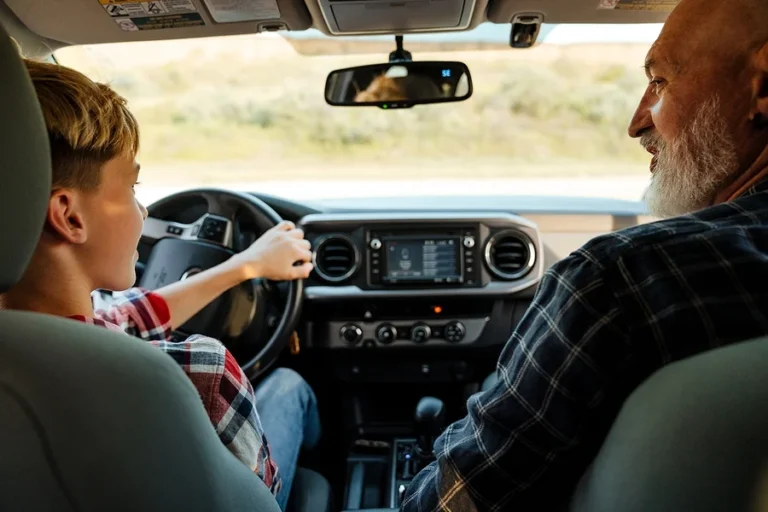North Dakota Teen Car Accidents
It might be understandable that teenagers get into their share of car accidents, but that doesn’t make those accidents any less severe. There are a lot of reasons teens cause car wrecks. They might be distracted, or they might not know how to drive on icy roads. No matter what the cause, when a wreck happens the consequences can be horrible.
Sand Law attorneys will be here for you if you’ve suffered an injury due to an accident caused by a teen driver. We’ll work to determine all the potentially liable parties so that you have the best chance of getting the money you need for your medical bills, any lost wages you’ve incurred, and other expenses. Please call 701-609-1510 or use our online form to schedule a free review of your case.
Here’s an overview of how often teenagers are involved in car accidents, why these accidents occur, and how we may be able to help if you’re injured due to a collision caused by a teen driver.
Teen Driving Statistics in North Dakota
Why Are Teens More Likely to Get into a Car Accident?

An accident involving a teenager can happen anywhere, just like any other kind of car wreck. It can happen because a distracted teen ran a red light at an intersection and T-boned another vehicle, or was goofing around in the car with friends. Here are just a couple of the more common reasons teens cause car accidents.
Poor Driving Habits
Teens don’t typically do as good a job of focusing on the road and their surroundings as more experienced drivers. They can become distracted very easily, and cause an accident as a result.. In fact, it’s estimated that 60% of accidents involving teens are due to distracted driving. These are just some of the ways these distractions occur:
- Interacting with other passengers
- Using a cell phone
- Looking for something inside a vehicle
- Looking at something outside the vehicle
- Dancing or singing
- Grooming
- Reaching for an object
Lack of Experience
The simple fact is that teens just haven’t been behind the wheel as long as more seasoned drivers, and they’ll be more prone to make mistakes. They’re not used to driving on snowy roads, and they might not recognize other hazards as quickly as a more experienced motorist.
North Dakota Laws Regarding Teen Driving
How to Prevent Teen Driving Accidents
There are actually a lot of things parents can do in order to reduce the chances their teen will cause a car accident. Here are a few things to teach your teen driver to keep them safe:
- Limit driving at night. Many crashes involving teens take place between 9 p.m. and midnight. Not only is it harder to drive once nighttime falls, teens who drive at night tend to do so for recreational reasons. They may be more easily distracted if they’re in a car with friends.
- Coach your teen. Driver’s education courses are great, but they’re no substitute for real-life experience. The safest way for a teen to get that experience will be for parents to be with them in the car as often as possible. Start with basic driving in situations that don’t present a lot of risk, then gradually introduce them to operating a vehicle in rain and on highways.
- Set a good example. If a teen sees a parent driving recklessly, they may pick up the habit. Parents should always wear their safety belt and obey all of the rules of the road. They should always refrain from talking or texting while driving, of course, but this will be especially important if there’s an impressionable teenager in the car.
What to Do if Your Teen is Involved in a Car Accident?
Hearing their child has been in a motor vehicle collision is one of the worst pieces of news a parent could ever receive. If this happens to you, try to remain as composed as you can. Ask your child if they or anyone else has been hurt, and call 911 as soon as you can. Find out where the accident occurred so you can tell the emergency dispatcher.
Also, tell your child to move the car to a safe spot if they can, such as a nearby parking lot or the shoulder of the road. If the car won’t move, tell the teen to stay in the vehicle with their seat belt fastened and turn on the hazard lights.
Colliding with a Teen: Does it Impact Your Case?
Deciding how much a car accident claim is worth can get more complex when it involves a wreck caused by a teenager. There may be multiple parties that are liable for the damages an accident victim incurs. If the parents allowed the teen to drive – even though they knew that teen couldn’t do so safely – then you may be able to take legal action against them.
As with any car accident case, however, you’ll need evidence in order to prove your case. A skilled attorney can help collect that evidence, such as video footage from security cameras that might show what happened.
How Do Traumatic Injuries Affect Teens?
Car accident injuries affect accident victims of all ages, of course. This is just a partial list of the injuries that can have permanent consequences.
- Traumatic brain injuries
- Neck injuries
- Spinal cord trauma
- Burns
- Back injuries
- And many others
